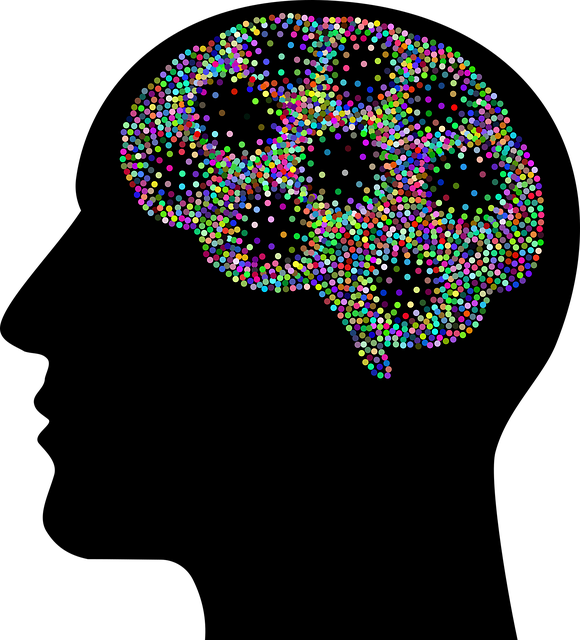Adjustment Disorder, often overlooked but significant, arises from significant life changes or stressors. Recognized by sadness, hopelessness, and aggression, it impacts daily functioning. Early therapy involving empathy-building and self-awareness exercises is crucial. Mental health professionals employ risk management planning for safe environments. Therapy empowers individuals with emotional regulation and coping strategies, such as CBT for negative thought patterns and EMDR for trauma processing. Cultural sensitivity ensures tailored care, combining Mind Over Matter principles with personalized support. Trauma-informed care services offer safe spaces, promoting healing through individual therapy, group support, and specialized programs. Building resilience through these methods facilitates long-term recovery from Adjustment Disorder and related challenges.
Trauma can profoundly impact individuals, leading many to seek support through various services. This article delves into adjustment disorder—a common consequence of traumatic events—exploring its symptoms and effects. We highlight the critical role of therapy in treatment, offering insights on different therapeutic approaches. Accessing trauma-informed care and building resilience are also discussed, emphasizing strategies for long-term recovery. Understanding these aspects is key to effective support for those dealing with adjustment disorder and seeking therapy for it.
- Understanding Adjustment Disorder: Symptoms and Impact
- The Role of Therapy in Treating Adjustment Disorder
- Types of Therapy for Effective Support
- Accessing Trauma-Informed Care Services
- Building Resilience: Strategies for Long-Term Recovery
Understanding Adjustment Disorder: Symptoms and Impact

Adjustment Disorder, often overshadowed by more prominent mental health conditions, is a complex condition that arises when an individual struggles to cope with significant changes or stressors in their life. This disorder manifests as a range of symptoms, from feelings of severe sadness and hopelessness to irritability and aggression. Those affected may also experience difficulties in various aspects of their lives, including school, work, and relationships. The impact can be profound, leading to a sense of disorientation and a significant drop in overall functioning.
Recognizing the signs is crucial for providing effective Therapy for Adjustment Disorder. Empathy Building Strategies and Self-Awareness Exercises can help individuals process their emotions and gain insights into their triggers. Moreover, Risk Management Planning for Mental Health Professionals plays a vital role in ensuring safe and supportive environments during therapy sessions, fostering recovery and resilience among clients navigating this challenging disorder.
The Role of Therapy in Treating Adjustment Disorder

Therapy plays a pivotal role in treating adjustment disorder, offering individuals coping mechanisms and support to navigate their challenges. This form of treatment is particularly effective as it focuses on helping people understand and manage their emotions, thoughts, and behaviors in response to stressful or traumatic events. Through therapy, individuals can develop essential coping skills that enhance their mental wellness.
Mental Wellness Coaching Programs Development and Mental Wellness Podcast Series Production can be valuable adjuncts to traditional therapy. These resources provide additional support by offering guidance, education, and community, thereby fostering a holistic approach to healing. By combining these strategies, individuals struggling with adjustment disorder can gain the tools necessary for long-term management of their mental health.
Types of Therapy for Effective Support

Trauma support services often incorporate various therapeutic approaches to effectively address different needs. One such evidence-based therapy for Adjustment Disorder and other trauma-related conditions is Cognitive Behavioral Therapy (CBT). CBT helps individuals identify and change negative thought patterns and behaviors, promoting healthier coping mechanisms. By focusing on the present and past experiences, CBT enables clients to adjust and manage their emotions in response to traumatic events.
Additionally, Eye Movement Desensitization and Reprocessing (EMDR) therapy has gained prominence for its effectiveness in treating post-traumatic stress disorder (PTSD). This approach facilitates the processing of traumatic memories while encouraging eye movements or other bilateral stimulation. Incorporating cultural sensitivity in mental healthcare practice is crucial, ensuring that therapies are adaptable to diverse backgrounds and beliefs. Mind over matter principles, coupled with healthcare provider cultural competency training, empower professionals to offer tailored support, making trauma healing more accessible and effective for all individuals seeking help.
Accessing Trauma-Informed Care Services

Accessing trauma-informed care services is a vital step for individuals seeking support for their adjustment disorder and other trauma-related challenges. These services are designed to help people navigate their experiences in a safe, non-judgmental environment, fostering an atmosphere that promotes healing and growth. Many options are available, including individual therapy, group support sessions, and specialized programs tailored to address specific aspects of trauma, such as depression prevention and mood management.
One key aspect of accessing these services is understanding the importance of resilience building. Therapists equipped with trauma-informed approaches can assist individuals in developing coping strategies that enhance their ability to manage symptoms and navigate life’s challenges more effectively. By focusing on both the mind and body, these services aim to holistically support individuals in their journey towards recovery, ensuring they receive comprehensive care that meets their unique needs.
Building Resilience: Strategies for Long-Term Recovery

Building resilience is a cornerstone for long-term recovery from trauma and adjustment disorders, such as Adjustment Disorder with Depression or Anxiety. It involves equipping individuals with effective coping skills to navigate life’s challenges. Through therapy sessions, clients learn to manage their symptoms, develop healthy coping mechanisms, and reframe negative thought patterns. This process empowers them to bounce back from setbacks and maintain a sense of stability.
The journey towards resilience also emphasizes self-care practices, burnout prevention techniques, and cultivating positive mindsets, all underpinned by the powerful principles of Mind Over Matter. By integrating these strategies into daily routines, individuals can foster a deeper sense of control and optimism, paving the way for lasting personal growth and improved overall well-being.
In navigating the complexities of adjustment disorder, accessing appropriate trauma support services is paramount. By understanding the symptoms and impact, utilizing therapy as a treatment modality, exploring diverse therapeutic approaches, and implementing long-term resilience strategies, individuals can effectively manage their conditions. Remember that seeking professional help and embracing a trauma-informed care perspective are essential steps towards recovery. With the right resources, building resilience becomes achievable, enabling those affected to lead fulfilling lives. For those struggling, diving into these services could be a game changer.








